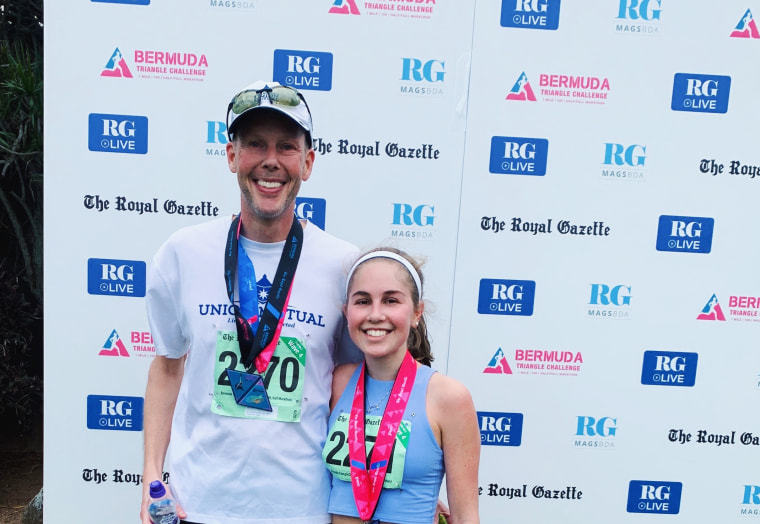My father took his own life in June after losing a battle with mental illness that had been largely invisible to all of us.
Throughout the grieving process, I keep asking myself if I missed any signs. Was my dad irritable at times? Yes. Did COVID-19 make him feel alone and isolated? Yes. Did I ever think he would have succumbed to taking his own life? No.
The hardest part of this devastating loss is there are so many questions that will go unanswered. But I’m hoping that sharing my story will help anyone who is struggling emotionally during this difficult time. The mental health impact of this pandemic is huge, and it cannot be ignored.
RELATED: Mika on mental health during COVID-19: This is a crisis for ALL of us
My world turned upside down on June 25. I was about to embark on a month-long trip to Vermont to work from home and see my dad. I hadn’t seen my dad in months because of the pandemic, and I was jealous of my friends who got to see their family. The night my dad passed away, he texted me and my sister, letting us know how excited he was to see us in less than a week.
I remember the feeling of hot gravel stinging my legs when I fell to the ground after I got the worst news from my mom, who informed me that my dad was no longer with us. Then I thought of my wedding day. Your dad is supposed to walk you down the aisle, give you away, dance with you and make a sappy speech. That was a moment I always took for granted and had so easily assumed my dad would be there. In one split second, that disappeared.
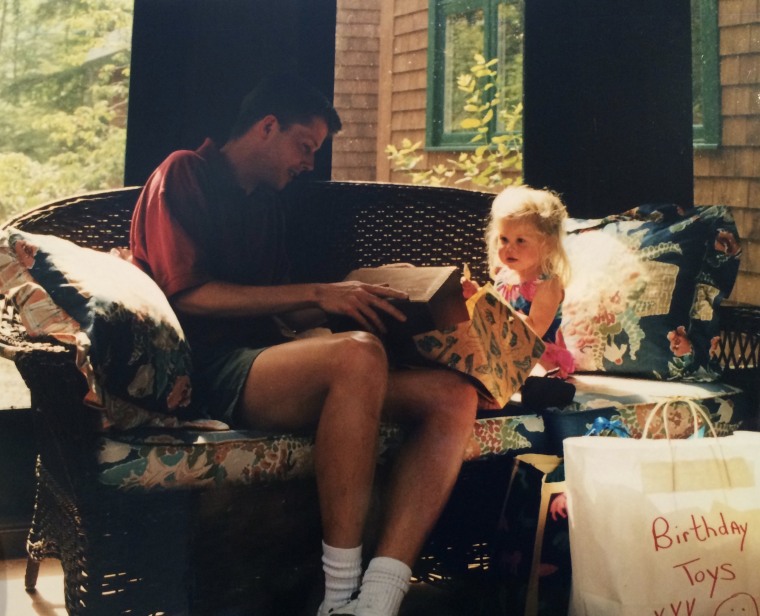
My dad was my superhero. He was a shining example of what it means to be a girl dad. He rarely missed one of my races, all the way through my college career when he started traveling the eastern seaboard in hopes of watching me run the fastest time possible.
Running was our thing. Since I was a kid, he created my training plans, sent me splits of his own lightning fast runs and even paid for me to fly to Bermuda to run the Bermuda Triangle Challenge with him that I admittedly didn’t train enough for. My dad, however, won all the awards possible during that Bermuda race. But he told everyone about me instead.
Looking back, I didn’t see his unhappiness and his mental illness in the way that I should have. I think he wanted it that way. He was selfless, and never wanted me to catch on. He wanted me to always remember him as that phenomenal girl dad.
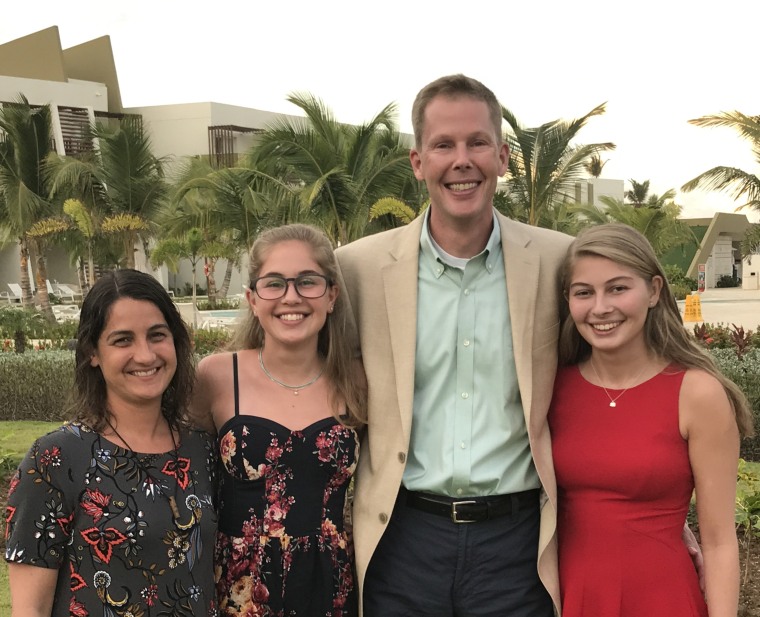
To the outside world, my dad had it all. He was president and CEO of an insurance company, where he pushed for a working environment centered around wellness. He was a phenomenal runner, philanthropist, and had a strong family network. But being a CEO, while an amazing accomplishment, is also hard and lonely at times. My father also likely struggled with how we treat men, and what society’s expectations of them are. They are supposed to suppress emotions or mask distress, maintaining an appearance of hardness, with violence as an indicator of power. Why do we pressure boys and men to fulfill a macho persona and how can we help change our culture?
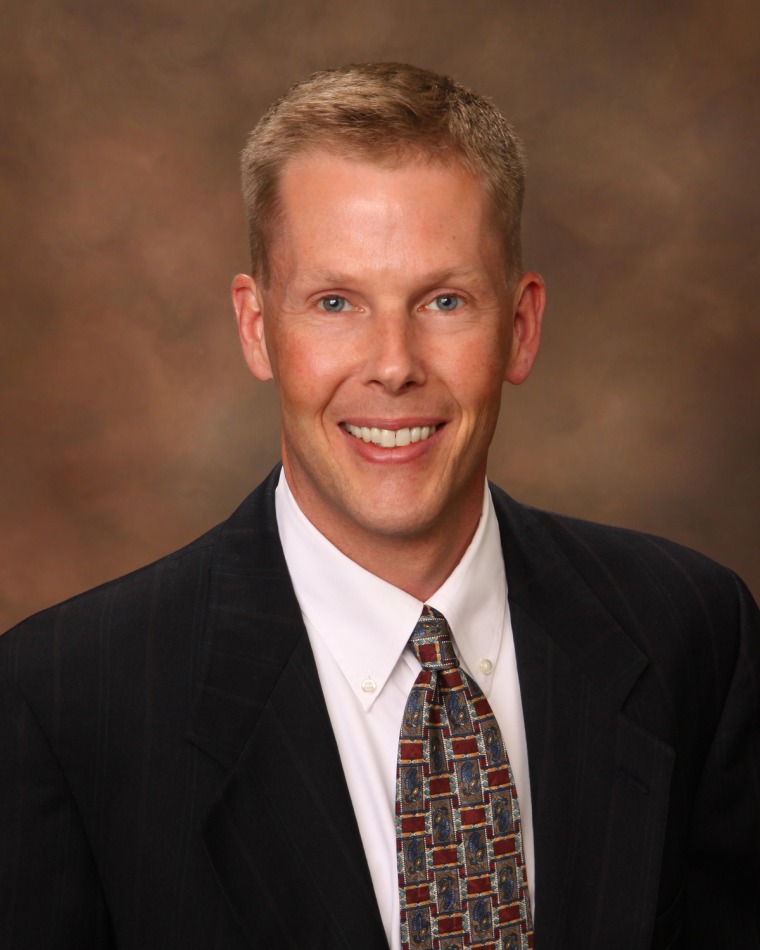
The first step we can all take is to educate ourselves. Men and women are affected by mental health in different ways. For example, according to Mayo Clinic, “[w]hen depression occurs in men, it may be masked by unhealthy coping behavior. For a number of reasons, male depression often goes undiagnosed and can have devastating consequences when it goes untreated.” Signs and symptoms of depression in men are:
· Feeling sad, hopeless, or empty
· Feeling extremely tired
· Problems with alcohol or drug use
· Controlling, violent, or abusive behavior
· Irritability or inappropriate anger
· Risky behavior
· Having difficulty sleeping or sleeping too much
· Not getting pleasure from activities usually enjoyed
· Escapist behavior
With our newfound knowledge on men’s mental health, we can then ACT and be there for those who are important in our lives. The ALEC model created by R U OK? serves as a guide for those of us who are struggling to reach out to someone who is going through a tough time.
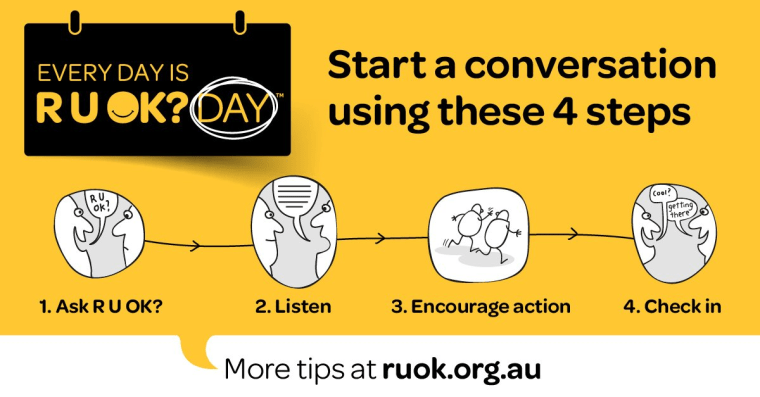
As Mika so eloquently described, running, which my father loved, creates a family through all the training, winning and losing you do together. And that running family has been a great support group during this difficult time.
On my dad's birthday this year, I hosted a digital run/walk/bike 5K and encouraged all my friends and family to participate by sharing photos with #MilesforMichael. My high school and college teammates, their parents, friends who hate running, friends who never had the chance to meet my dad – they all showed up. The turnout made me feel a level of support that words cannot describe. In the middle of a pandemic, we still brought together a community to honor a phenomenal man. I’ve learned to lean on my community for support.
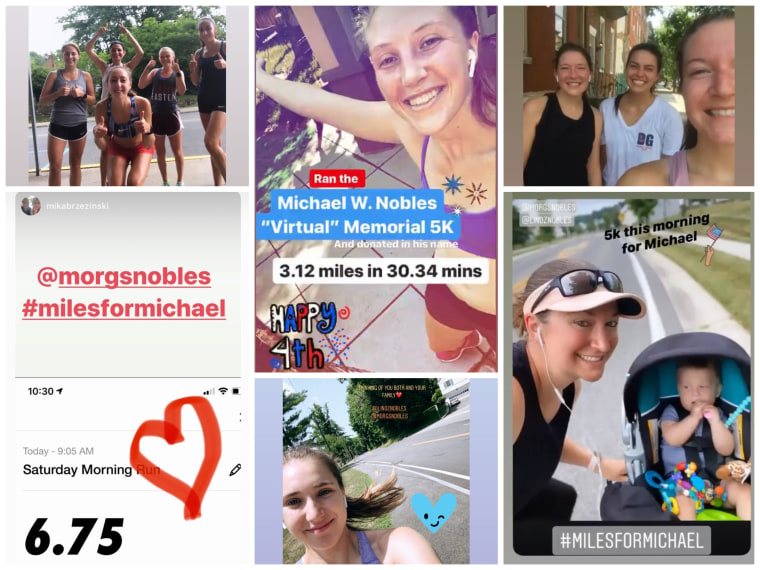
Movember, an annual event involving the growing of mustaches during the month of November to raise awareness of men’s health issues is quickly approaching. Consider participating or taking part in their challenge to complete 60 miles in November for the 60 men we lose to suicide each hour. It’s what I will be doing.
I am devastated by the loss of my father and saddened that he was not capable of reaching out to ask for help. By spreading awareness and providing education I hope to help at least one person reach out if they are struggling. Our friends need us. Our family needs us. Life is tough right now. Just start with a simple “How are you?”
If you need help, call the National Suicide Prevention Lifeline 1-800-273-TALK or text TALK to 741741.
